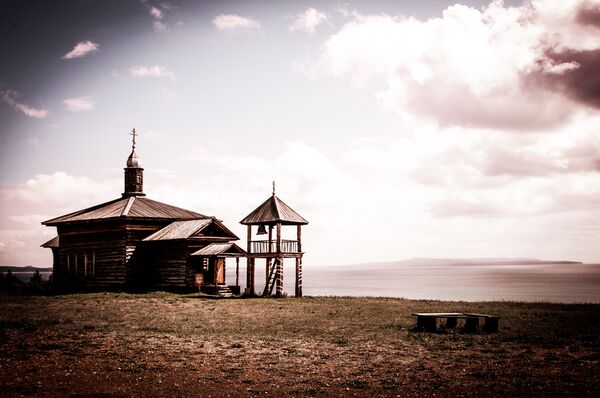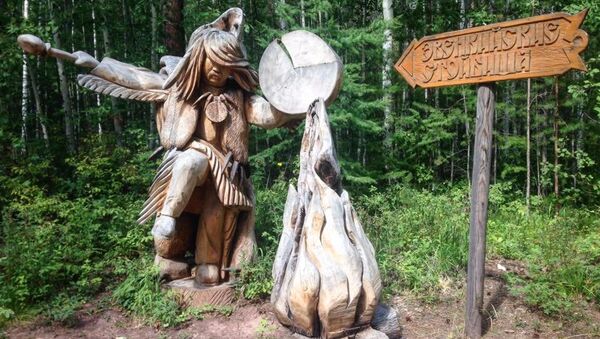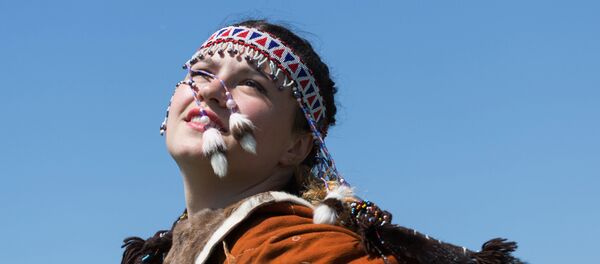Due to their small number and very isolated and harsh environment, the Evenks managed to avoid contacts with other cultures for a long time.
Mongols and other nomadic groups did not come this north, unable or unwilling to ride their horses through the taiga.
As the fur trade began in Siberia, Evenks used their supreme hunting skills and the knowledge of the local environment to serve as the main providers of fur to the highest circles of St. Petersburg and Moscow.
In return, the Russian Empire left the Evenks alone, giving them rights to follow their own customs and traditions.
That said some Evenks have still adhere to shamanism, ancient traditional beliefs and practices that focus on various spirits, as their main religion. I personally found shamans, people who are said to have influence over spirits, very intriguing.

Evenk shamans are believed to be very powerful individuals who can influence everything from weather to people’s lives. One should never disrespect a shaman or even cross his path without a valid enough reason, as there’s nothing scarier in the Siberian taiga than an angry shaman.
I heard a story about a group of three hunters that came across an old cabin in the woods. As the hunters entered the hut, they saw a white two-headed hare sitting inside. Being young and obnoxious, the hunters shot and killed the hare. When they came closer to inspect the dead animal, they almost jumped out of their skin in sheer terror – one of the hare’s head had the face of an old man.
After the incident all three hunters became ill and died within a year. I can't say whether it was a shaman whose death curse killed the hunters, but I certainly wouldn’t recommend anyone acting disrespectfully toward an Evenk shaman.

The Evenks, like other indigenous peoples of the Russian North, are quickly losing their traditional culture. Shopping malls and iPhones are becoming more important for young people these days than the customs and traditions of their forefathers. Sometimes I wonder whether it’s a natural process that comes with the term civilization? If that’s what “progress” is than it’s not progress at all, because within a couple of decades the world will lose one of Siberia’s unique cultures that has existed in harmony with the taiga for thousands for years.
The views expressed in this article are solely those of the author and do not necessarily reflect the official position of Sputnik.






